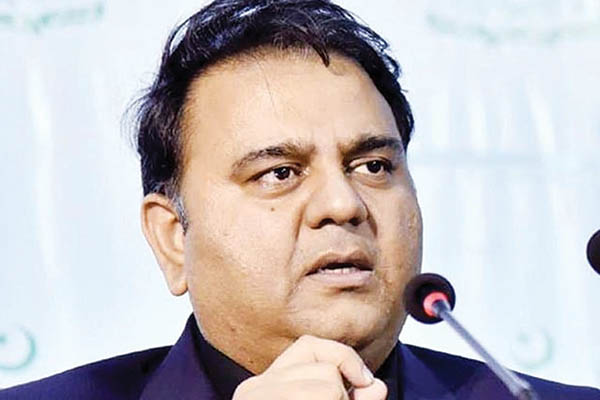
The Pakistan Tehreek-e-Insaf (PTI) on Thursday reacted to the Supreme Court’s detailed judgment on the illegal actions of former deputy speaker Qasim Suri in dismissing a no-trust vote against Imran Khan by describing it as “full of errors.”
Addressing a press conference in Islamabad, PTI leader Chaudhry Fawad Hussain claimed that once his party returned to power, it would get the judgment quashed through a parliamentary resolution. “Right now, the assembly is occupied, but once the PTI forms government with two-thirds majority, we will quash this judgment through the National Assembly,” he claimed.
The apex court, in its ruling, rejected the PTI’s allegations of its ouster being instigated by a “foreign conspiracy”—merely the latest to do so after the National Security Committee did likewise—saying that it had not been provided evidence to support the claims. “The history of Supreme Court decisions in Pakistan has not been that bright,” said Chaudhry, adding that the PTI had submitted documents related to the cypher—not the actual document itself—but the Supreme Court had refused to consider them and advised the party against speaking on it in depth.
“The court did not even bother to look at the evidence,” he claimed of the judgment questioning the lack of sufficient material to support the PTI’s claims. The court, however, had noted in its ruling that it was not a “trial court” and in the absence of any formal inquiry, it could not launch its own probe. It had also noted that the NSC’s refusal to declare the contents of the cipher as a “foreign conspiracy” likely reflected “the inadequacy of the material to take more assertive action.”
Implying collusion between the court and the so-called conspirators, Fawad claimed people were aware of why the Supreme Court “did not want to investigate the cypher,” as any probe would lead to a conversation that “they” want to avoid.
To a question on Justice Mazahar Alam Khan Miankhel’s additional note—which states that President Arif Alvi, then-P.M. Khan, then-NA speaker Asad Qaiser, ex-deputy speaker, and former law minister Fawad had violated their authority and it was up to Parliament to decide if this merited a high treason charge—Fawad appeared to threaten judges by saying they should be asked what should be done to justices who acted against the national interest.
“If we begin to pursue cases under Article 6, we will find there are more people to hang than there are nooses,” he said, adding that it was unfortunate the “establishment has developed a taste for making political decisions in the country.” This practice of judges and generals making decisions behind closed doors, he claimed, could not continue.
Separately, addressing a campaign rally in Dera Ghazi Khan, PTI Chairman Imran Khan said he was “deeply hurt” by the detailed judgment. He claimed the cipher had been discussed by the NSC and the federal cabinet, but a commission to probe it had been disbanded after the ouster of the PTI-led government. Responding to these claims, Law Minister Azam Nazeer Tarar said the only reason the commission had been disbanded was because two former chief justices of Pakistan had refused to lead it because they believed it would be a waste of time as Khan would never accept its findings.
Addressing a press conference alongside Adviser to the Prime Minister on Kashmir Affairs and Gilgit-Baltistan Qamar Zaman Kaira, the minister said the incumbent government was ready to cooperate with the court if it wished to constitute a commission to probe the PTI’s claims. He also praised the ruling, saying it would strengthen democratic norms and the rule of law. He said Khan had showed undue haste in seeking the dissolution of the National Assembly immediately after the deputy speaker set aside the no-confidence motion, adding that the president had also not done his due diligence in accepting illegal advice from the then-premier.
In a posting on Twitter, Prime Minister Shehbaz Sharif said the apex court’s detailed judgment had “exposed the lies and propaganda” of Imran Khan and other PTI leaders. He said it was “utterly shameful” how Khan had tried to undermine the Constitution and “fabricated the narrative of regime change.”
